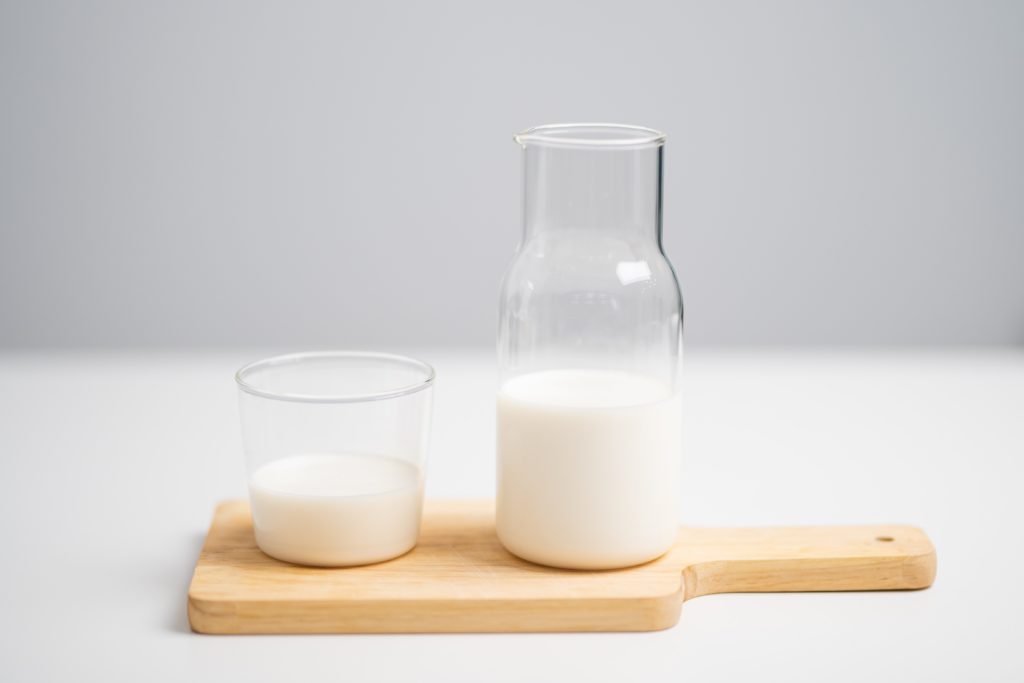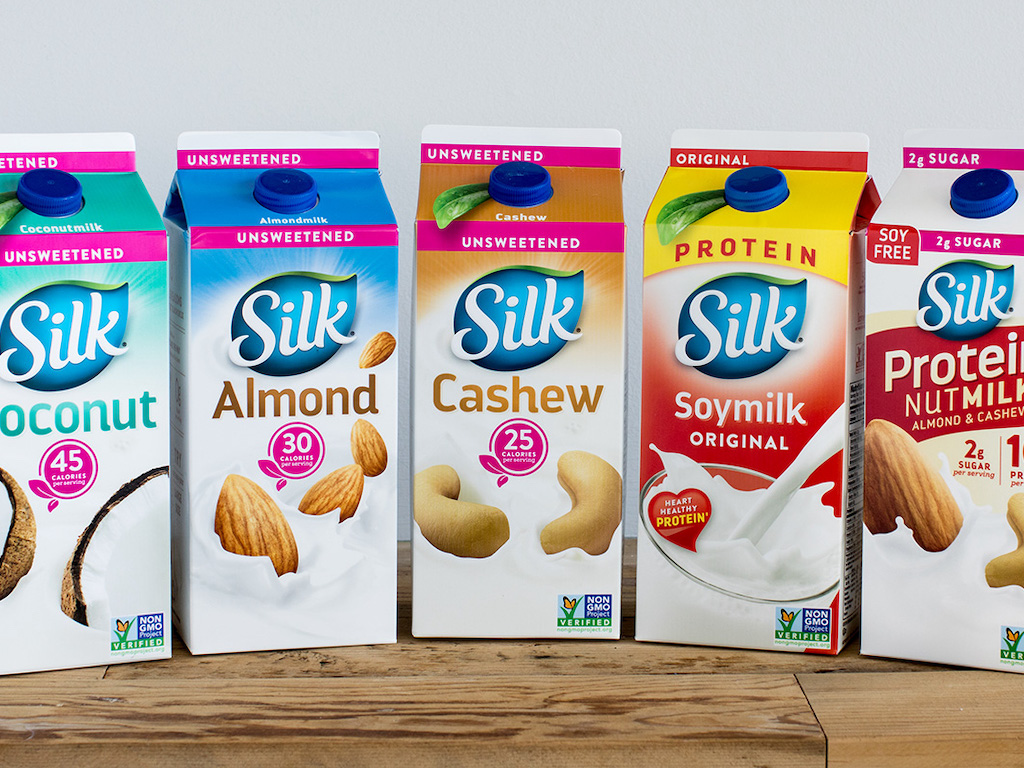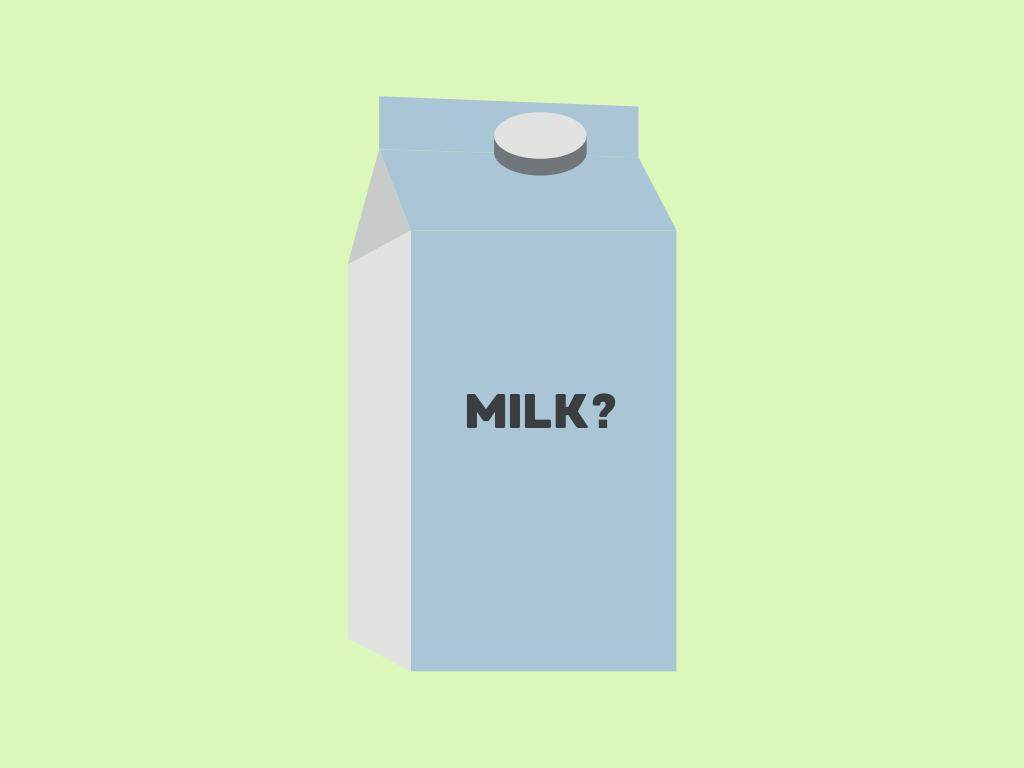‘Unprecedented and Unnecessary’: Industry Responds To FDA’s Proposed Plant-Based Milk Labelling Guidance
6 Mins Read
One of 919 respondents to the proposed plant-based milk labelling guidance by the US Food and Drug Administration (FDA), the Plant Based Foods Association (PBFA) submitted the largest comment – a 19-page document. Speaking to Green Queen Media, the organisation tells us the FDA’s draft fails to reflect consumers’ ability to discern plant-based milk from conventional dairy, and could lead to frivolous lawsuits.
In February, the FDA published the Draft Labeling Recommendations for Plant-based Milk Alternatives to Inform Consumers. Focusing on consumer awareness about plant-based milk, the FDA recommended that while plant-based milk brands are welcome to use the term ‘milk’ to describe their products, those that have a different nutritional composition to conventional dairy should bear a voluntary nutritional statement to describe the differences.
This is in addition to the Nutrition Facts label that is mandatory for all food and drink products in the US. The FDA based its information on six consumer surveys, explaining that “while the majority of consumers understand that milk and plant-based milk alternatives are different products, consumers may not understand the nutritional differences between them”.
In response, the PBFA launched a Freedom of Information request to access the consumer research cited by the FDA. This followed an assessment by Professor Joel H Steckel, from New York University’s Leonard N. Stern School of Business, scrutinising the foundation of the FDA’s conclusions. Steckel says there’s an element of confirmation bias due to some of the reports being funded by the dairy industry.
He adds that there’s no science backing the FDA’s conclusion, with those six studies not having any objectives related to consumer perceptions about nutritional content. Further, the FDA’s draft is for guiding present-day consumers, but the reports it bases this on were from 2017-19, a period after which the plant-based milk sector has significantly expanded. PBFA’s research shows that between 2018-22, vegan milk alternative sales have grown from $1.6B to $2.8B.
What does the PBFA say?
The PBFA challenges the validity and necessity of the proposed nutritional disclaimers, given existing FDA regulations already require products to have the Nutrition Facts label.
“The evidence is clear: there is no confusion around the labelling of plant-based milks,” Nicole Negowetti, PBFA’s VP of policy and food systems, tells Green Queen. “In their draft guidance, FDA acknowledges this fact, which is in alignment with research PBFA has conducted over the years. In addition, FDA recognised that consumers understand that plant-based milk alternatives are distinct products and choose to purchase plant-based milk alternatives because they are not cow’s milk.”
She adds: “Plant-based milks provide variety and choice to consumers, many of whom do not consume dairy. They are increasingly purchasing plant-based milk alternatives because of allergies, cultural relevance, intolerances to milk, sustainability, or lifestyle choices (for example, [a] vegan diet).”
Negowetti says the FDA’s guidance doesn’t take consumer responses into account, instead solely basing itself on the six reports Steckel criticises. “The FDA’s draft guidance does not reflect consumers’ proven ability to be discerning in their food choices, and ‘guidance’ of this nature will inevitably lead to frivolous lawsuits that will place further burden on the plant-based industry at a time when supporting continued innovation and scaling to meet rising consumer demand should be of utmost importance.”
She reiterates the popularity of alt-milk in the US. “With 40.6% of U.S. households purchasing plant-based milks in 2022 – and an astounding 75.7% of consumers repeating their purchases – plant-based milk has become a household staple and a category powerhouse,” she notes. “US consumers are actively seeking out plant-based milks, and are not confused by labelling.” A 2020 survey by US non-profit the Vegetarian Resource Group proved as much, revealing that 92% of Americans knew the difference between soy and dairy milk.
One consumer responded to the FDA’s guidance by writing: “There is no confusion between dairy milk products and plant milk alternatives. Plant-based milk is clearly labelled – made from plants and gives consumers a choice to choose a healthier and cruelty-free option to dairy milk.
“Plant-based milk labels are not misleading, nor is there consumer confusion over the nutritional content of plant-based beverages. The labels on plant-based milk include nutritional information and for that reason, people clearly understand the nutritional differences between dairy milk and plant-based milk.”
What does the dairy industry say?

The FDA’s guidance falls in an awkward place between the dairy and plant-based sector. While the latter is unhappy about the nutritional recommendations, the former is – as one would expect – critical of the fact that the FDA is allowing vegan brands to label their products as ‘milk’ in the first place.
“For far too long, plant-based beverage manufacturers have blurred well-defined standards of identity to inappropriately and unfairly capitalise on dairy’s nutritional benefits while FDA has ignored its enforcement obligations,” said Jim Mulhern, CEO and president of the National Milk Producers Federation.
But studies have shown that most plant-based milk alternatives contain similar levels of calcium and vitamin D as dairy, though not all came close to the latter’s protein content. However, there are a number of products that match or even surpass cow’s milk in terms of protein per serving.
The NMPF also said it had never asked for an outright ban on using dairy terms for plant-based alternatives. But a peak at its website has strong inclinations otherwise, where it says it “supports actions that stop the continued proliferation and marketing of mislabeled non-dairy substitutes for standardised dairy foods misrepresented as ‘milk’, ‘cheese’, ‘butter‘, ‘yoghurt’, ‘ice cream’, or other dairy foods”.
Meanwhile, Dairy Farmers of America called on the FDA to go a step further in terms of the nutritional labelling guidance. “A voluntary recommendation will only create more confusion as some products may bear the comparison and others will not,” said its chief safety officer Robert Byrne. “This certainly will not lead to less confusion in the marketplace.”
What do other vegan stakeholders say?

Danone North America – a giant in both the dairy and alt-dairy sectors – veered on the contrary, calling a front-of-pack nutrient statement or comparison “unnecessary and inconsistent with existing FDA regulations”. It added that this “will overcrowd the label and potentially create consumer confusion” and conflict with other messaging to add to the confusion.
The company added: “We are not aware that FDA has set out a similar suggestion for disclosure of nutritional differences for any other category of foods. Countless foods are regularly used as alternatives for others, so the potential scope of the precedent proposed here by FDA is massive.”
Echoing this sentiment was the Vegetarian Resource Group, which responded to the FDA’s example of plant-based milk labels reading “contains lower amounts of calcium than milk”. “Manufacturers are not encouraged to include statements such as ‘contains a lower amount of fibre than plant-based burgers’ on a package of ground beef patties or ‘contains a lower amount of iron than soy milk’ on a carton of dairy milk,” it wrote in its comment. “We do not think it is necessary nor appropriate to recommend that plant-based milk alternatives include an additional statement on their package comparing them to dairy milk.”
The PBFA does welcome the FDA’s position that the term ‘milk’ can be used for plant-based alternatives as long as it isn’t misleading. While there is no timeline for when the FDA’s final recommendations will be released, it hopes the FDA will carefully consider the responses in its result. “The outcome will undoubtedly impact the future labelling and marketing of plant-based milks, and may set a precedent for the treatment of other plant-based food products in the market,” the organisation writes.
“We believe [the] FDA should be at the forefront of creating regulation that is reflective of today’s consumer’s interest in plant-based foods, which is in part driven by their interest in having a positive impact on the planet,” says Negowetti.




